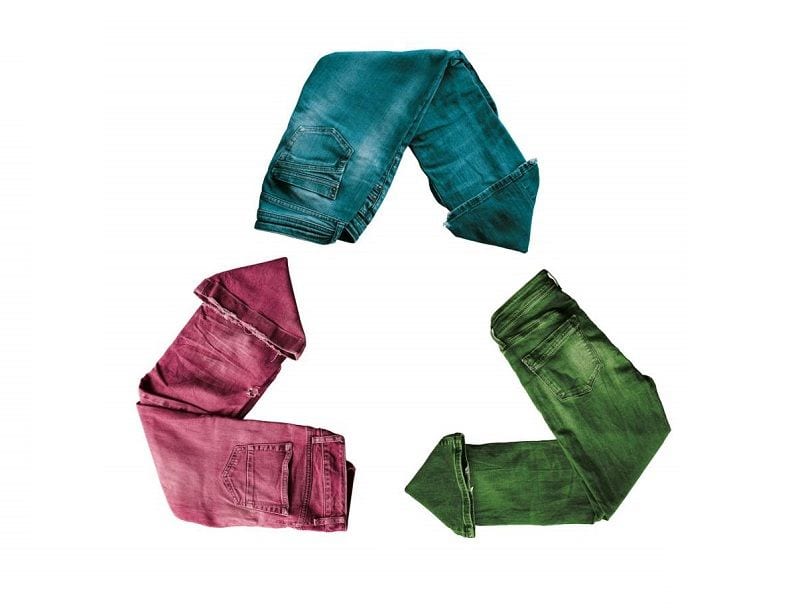Remain Ahead of the Curve by Discovering Innovative Fashion Patterns
In an industry as dynamic as fashion, staying in advance entails more than just adhering to existing trends-- it requires an exploration of advancement. Smart fabrics, for instance, are transforming garments into practical masterpieces, while 3D printing is changing design procedures with its customizable, waste-reducing abilities. As sustainability ends up being a keystone, technologies like environment-friendly products and round style techniques are improving environmental duty - Cape Town Sustainable Fashion. Furthermore, the convergence of innovation and fashion advertises a new period of consumer engagement. How, after that, can these arising fads redefine the future of style, and what effects do they hold for brands looking for to grow in this evolving landscape?

Welcoming Smart Textiles
Over the last few years, the fashion business has experienced a transformative shift with the combination of clever textiles, a cutting-edge technology that blends innovation with material. This advancement stands for not only a combination of appearances and functionality but likewise a considerable jump in the direction of sustainability and customization in vogue. Smart fabrics, likewise called e-textiles, installed innovative electronic devices such as sensing units and conductive threads within the fabric, allowing garments to communicate with the atmosphere or the wearer.
These textiles are created to keep an eye on physical specifications, such as heart rate or body temperature, providing real-time health and wellness analytics. Past health and wellness applications, wise textiles are also being utilized for flexible apparel, which can change shade or pattern in feedback to ecological stimuli, thus offering a vibrant style experience.
In addition, the growth of energy-harvesting textiles that generate power from activity or sunshine is leading the way for self-sufficient wearable technology. This innovation is interesting ecologically conscious customers and designers aiming to reduce the eco-friendly footprint of fashion. As research and growth in this field development, wise textiles are anticipated to become increasingly common, reshaping the landscape of modern-day style with their multifunctional capabilities.
The Surge of 3D Printing
Reinventing the manufacturing landscape, 3D printing has actually become a game-changer in the garment industry. This cutting-edge modern technology has made it possible for designers to press the boundaries of imagination, generating complex and tailored garments that were formerly unbelievable. By leveraging digital design and additive manufacturing, 3D printing promotes the creation of intricate geometries and patterns, permitting developers to trying out brand-new structures and structures.
A noteworthy benefit of 3D printing in vogue is its ability to generate on-demand, reducing waste and minimizing supply needs. This efficiency not just maximizes production processes however likewise allows for rapid prototyping, enabling developers to bring their visions to life in a much shorter duration. Furthermore, 3D printing supports customization to a level unmatched by conventional approaches, supplying unique designs and customized fits tailored to individual consumer preferences.
The increase of 3D printing has likewise equalized fashion, making it easily accessible to emerging designers who can now fabricate top notch items without considerable monetary investment in standard manufacturing framework. As modern technology remains to development, the garment industry is poised to harness the complete possibility of 3D printing, exploring brand-new products and methods that will certainly redefine how style is conceived and produced.
Sustainable Style Technologies
As the garment industry comes to grips with the pushing demand for ecological responsibility, sustainable fashion developments have actually emerged at the center of transformative change. The expanding understanding of environmental effect has actually fueled a shift in the direction of even more eco-conscious practices and products. Designers and brand names are now focusing on sustainability, incorporating methods that decrease waste and lower carbon impacts.
One considerable development is the rise of round fashion, which stresses recycling and upcycling to extend the lifecycle of garments. This approach not only lowers waste yet additionally encourages consumers to adopt a more mindful technique to clothes usage. Furthermore, making use of sustainable materials, such as organic cotton, hemp, and recycled polyester, has obtained traction. These materials need less water and power during production, dramatically reducing environmental influence.
Another advancement lies in the adoption of innovative dyeing techniques that make use of natural dyes or waterless procedures, therefore reducing the substantial amounts of water and chemicals traditionally used in fabric dyeing. Moreover, innovations in biotechnology have actually brought about the production of lab-grown natural leather and textiles, offering cruelty-free and eco-friendly choices to standard products. Through these pioneering initiatives, the fashion sector is making purposeful strides towards a more sustainable future.

Tech-Integrated Clothing
Tech-integrated apparel discover here represents a cutting-edge combination of fashion and modern technology, reshaping how individuals communicate with their apparel. This ingenious domain is noted by the incorporation of clever textiles and ingrained electronic parts, improving both performance and aesthetic charm. From fitness trackers embedded in sportswear to heated jackets controlled through mobile phone applications, tech-integrated apparel offers customers unprecedented ease and flexibility.
Introducing brand names are driving this fad, focusing on producing garments that reply to environmental stimulations or user commands. For example, some garments can alter color or pattern in response to temperature level shifts, while others integrate biometric sensors to monitor wellness metrics like heart rate or anxiety levels. The seamless combination of technology into textiles also includes environmental sustainability, with initiatives to establish self-cleaning fabrics or garments that adapt to climate condition, therefore lessening the requirement for numerous layers.
Additionally, the development of wearable technology is not just limited to clothing yet prolongs to devices like watches and eyeglasses, further broadening the extent of tech-integrated fashion. As the industry continues to innovate, the capacity for modification and customization in clothing expands, offering customers special, tech-enhanced fashion experiences that deal with their specific demands and preferences.
Future of Virtual Style
Recently, the future of virtual style has actually become a transformative force within the market, leveraging improvements in digital innovation to redefine exactly how style is developed, experienced, and consumed. By incorporating increased truth (AR), online reality (VR), and 3D layout devices, developers can now craft immersive and interactive experiences that go beyond typical style boundaries. Virtual style permits for the production of garments that exist exclusively in digital environments, supplying limitless opportunities for advancement without the limitations of physical production.
This electronic shift not just provides opportunities for imaginative expression however also addresses sustainability problems integral in standard fashion techniques. Cape Town Sustainable Fashion. By eliminating the demand for physical resources, digital fashion lowers waste and lessens carbon footprints. In addition, the rise of digital fashion lines up with the increasing customer demand for unique and tailored click site experiences, as online garments can be tailored and tailored to private choices effortlessly

Conclusion
The style industry's future lies in the combination of cutting-edge modern technologies and sustainable methods. Online fashion is positioned to redefine customer communications.
In recent years, the fashion industry Full Report has actually witnessed a transformative shift with the combination of wise textiles, an innovative technology that mixes technology with fabric.As the fashion industry grapples with the pressing need for environmental responsibility, sustainable fashion advancements have actually arised at the center of transformative adjustment.In current years, the future of digital style has actually arised as a transformative force within the market, leveraging developments in digital innovation to redefine exactly how fashion is created, experienced, and consumed. The rise of virtual style straightens with the raising customer demand for individualized and distinct experiences, as online garments can be personalized and tailored to specific choices with simplicity.
The fashion sector's future lies in the assimilation of lasting methods and innovative modern technologies.